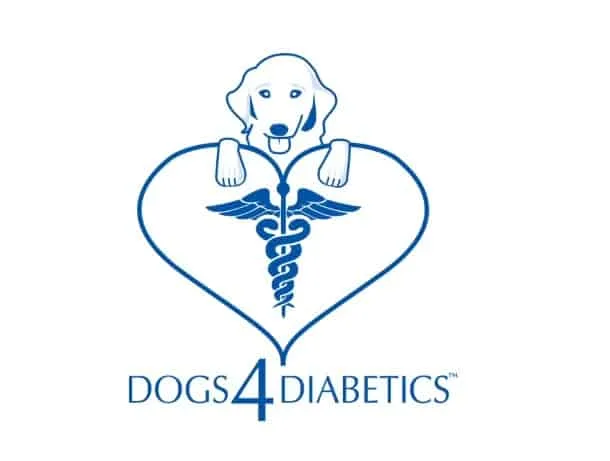 Diabetes affects 29 million Americans, with more than five million individuals required to take insulin to ward off complications from the disease. Helping to keep the condition under control is the role of Dogs4Diabetics medical alert assistance dogs, whose noses know the scent of impending hypoglycemia. Thanks to their work, the dogs are able to help provide the feeling of independence for those who are insulin-dependent.
Diabetes affects 29 million Americans, with more than five million individuals required to take insulin to ward off complications from the disease. Helping to keep the condition under control is the role of Dogs4Diabetics medical alert assistance dogs, whose noses know the scent of impending hypoglycemia. Thanks to their work, the dogs are able to help provide the feeling of independence for those who are insulin-dependent.
Medical alert assistance dogs who raise awareness of of a drop in blood glucose levels not only provide protection from the short term serious risk of hypoglycemia, which helps the diabetic avoid the disease’s long-term risks (such as blindness or amputation), they also improve both their handler’s mental and emotional health as well as that of the handler’s family. Parents with diabetic children are comforted by the support of their medical-alert dog in numerous situations, such as providing a support system for children when they are away from home. Additionally, a dog’s friendly reminder to check your blood sugar is often easier to accept than the perceived nagging of a parent, spouse or friend.
It takes a village of Dogs4Diabetics volunteers to complete the process of training a medical alert assistance dog, placing the pooch and providing all follow-up services at no cost to the recipient. A staff of more than 100 dedicated individuals take on tasks ranging from foster families housing a four-legged hero during a six-month training program and medical professionals assisting in the dog’s selection and training as well as offering support for clients, to professional trainers assuring that the canines have all the capabilities necessary to step into such a vital role. In all, the cost of a canine’s transformation into a medical alert assistance dog is $25,000 — and that does not include the costs for the ongoing support services Dogs 4 Diabetics provide to its clients.
Photo Credit: Dogs 4 Diabetics
- Arthur The King Movie Showcases Rescue of Stray Dog - March 12, 2024
- 2024 Bark in the Park Major League Baseball Games - March 11, 2024
- Meghan Markle Celebrates Shelter Expansion - February 22, 2024
